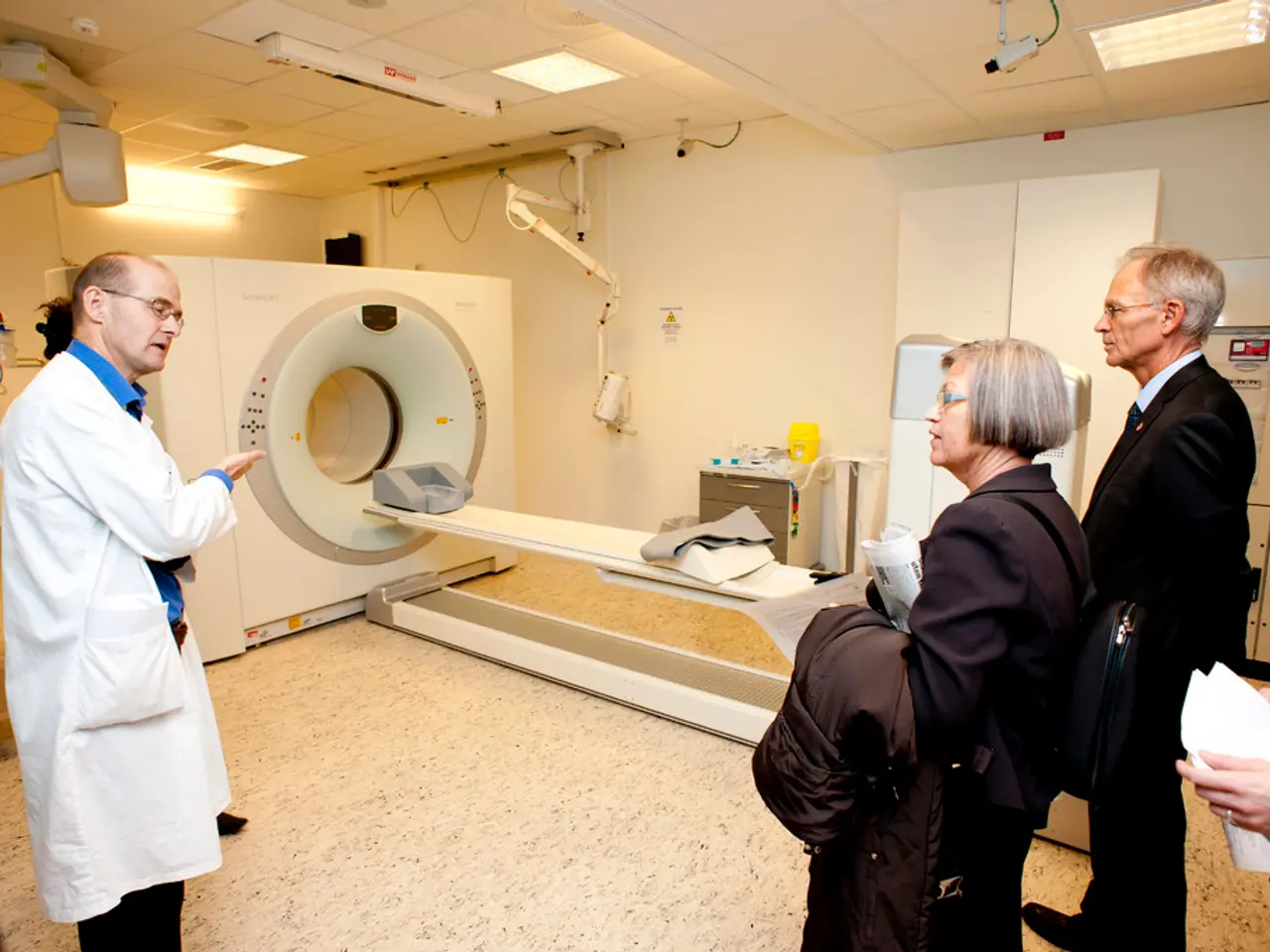Red Flags Indicating Extensive Negativity Surrounding You: Identifying and Coping Strategies
In the rapidly evolving landscape of healthcare, the focus on data privacy and security has never been more critical. This is particularly true for healthcare employees and organizations as they navigate the current updates and future implications of HIPAA regulations in 2025.
Over the past year, significant changes have been made to HIPAA, with a notable impact on compliance, operational practices, and cybersecurity investments. One of the most notable updates involves strengthened reproductive health privacy protections, introduced in 2024, which aimed to enhance protections around reproductive health information. However, the future of this rule is uncertain following a recent vacating by a Texas federal judge [1][2][4].
Another update has eased data flow when patients change payers, supporting better healthcare coordination [2]. Additionally, the penalty structure for non-compliance has been adjusted, with inflation-adjusted minimum and maximum fines, although this new structure has been in use since 2019 [3].
A proposed update to the HIPAA Security Rule, aiming to meet goals outlined in HHS’s Healthcare Cybersecurity Strategy, was issued in January 2025 [1][2]. This update is expected to result in mandatory enhancements to risk management, threat detection, and data protection practices for covered entities and their associates [1].
Looking ahead, the anticipated Security Rule revisions will likely require substantial investments in cybersecurity infrastructure, signalling a major forthcoming shift towards stricter security requirements [1]. Healthcare organizations must also stay agile and monitor regulatory developments to maintain compliance and adjust policies accordingly [1][2][4].
With ongoing legal challenges and the potential for increased enforcement and penalties, healthcare employees and organizations face larger financial risks from HIPAA violations [3]. This underscores the importance of robust compliance programs, training, and regular audits. New HIPAA regulations require organizations to revise internal policies, train staff on updated privacy and security protocols, and implement advanced technical safeguards to protect ePHI (electronic protected health information) [5].
In summary, healthcare employees and organizations should prepare for stricter HIPAA regulations, increased penalties, and a stronger focus on cybersecurity and reproductive health privacy. Regular training and updates on HIPAA regulations are necessary to ensure that healthcare employees know their obligations and responsibilities for protecting patient information. By staying vigilant and committed to upholding patient privacy rights, the healthcare industry can continue to build and maintain trust with its patients as it evolves with new technologies and data privacy regulations.
References: [1] HealthITSecurity.com, (2025), HHS Proposes Major Overhaul of HIPAA Security Rule to Bolster Healthcare Cybersecurity. [Online] Available at: https://healthitsecurity.com/news/hhs-proposes-major-overhaul-of-hipaa-security-rule-to-bolster-healthcare-cybersecurity
[2] Healthcare IT News, (2024), HHS issues final rule to improve continuity of care by streamlining patient access to health information. [Online] Available at: https://www.healthcareitnews.com/news/hhs-issues-final-rule-improve-continuity-care-streamlining-patient-access-health-information
[3] Healthcare Dive, (2021), HHS updates HIPAA fines for first time in 18 years. [Online] Available at: https://www.healthcaredive.com/news/hhs-updates-hipaa-fines-for-first-time-in-18-years/609480/
[4] Politico, (2025), Judge blocks HHS rule on reproductive health data. [Online] Available at: https://www.politico.com/news/2025/06/01/judge-blocks-hhs-rule-on-reproductive-health-data-00064474
[5] Healthcare IT News, (2021), HHS proposes to update HIPAA Security Rule for modern era, but it's not enough for cybersecurity experts. [Online] Available at: https://www.healthcareitnews.com/news/hhs-proposes-update-hipaa-security-rule-modern-era-its-not-enough-cybersecurity-experts
- Education in the healthcare sector must incorporate the latest updates on HIPAA regulations, especially for those working in compliance and cybersecurity.
- The increased focus on reproductive health privacy protections under HIPAA underscores the importance of medical-conditions education for healthcare professionals.
- With the easing of data flow when patients change payers, there is a need for training on chronic-diseases management and care coordination in the workplace-wellness programs.
- As HIPAA regulations become stricter, fitness-and-exercise programs in the workplace should include sessions on mental-health awareness and stress management.
- In the context of autoimmune-disorders, health-and-wellness initiatives should encompass skin-care education and therapies-and-treatments for managing symptoms.
- Nutrition plays a crucial role in digestive-health, so employee wellness programs should offer workshops on healthy eating habits and dietary management.
- The stricter HIPAA regulations also emphasize the need for eye-health and hearing screenings as part of comprehensive workplace wellness programs.
- Healthcare employees should be aware of the impact of cardiovascular-health on productivity and overall well-being, calling for focused training and education initiatives.
- As HIPAA updates involve mandatory enhancements to cybersecurity, it is essential that businesses invest in cbd-based solutions for managing stress and promoting wellness in the workplace.
- Neurological-disorders, such as Alzheimer's and Parkinson's diseases, require continuous learning and understanding among healthcare professionals to provide optimal care.
- Financial literacy is an integral part of personal-finance education for healthcare employees, especially in dealing with medical bills and insurance claims arising from medical-conditions.
- Entrepreneurs in the healthcare sector should prioritize leadership skills and diversity-and-inclusion strategies to create a more empathetic and effective workforce.
- Lifestyle choices greatly influence skin-conditions, making it necessary to incorporate skin-care advice and tips into personal-finance education and sustainable-living workshops.
- Budgeting skills are crucial for managing expenses related to car maintenance and travel, as many healthcare professionals rely on personal vehicles for work and must travel frequently.
- In the rapidly evolving healthcare landscape, employees should embrace continuous learning opportunities to stay updated on the latest treatments and therapies, especially for respiratory-conditions and cancer.
- Awareness and education on home-and-garden practices that promote health and wellness, such as air-purification methods and natural remedies, can benefit both employees and patients.
- As careers in the healthcare sector offer multiple opportunities for growth, employees should be encouraged to develop essential business, communication, and career development skills to excel in their chosen paths.






